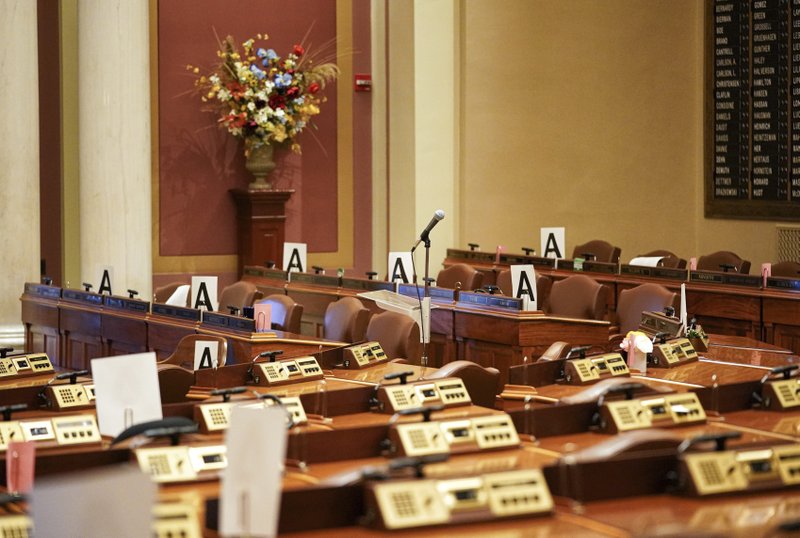JEFFERSON CITY, Mo. -- Across the United States, numerous governors, lawmakers, mayors and county officials have decided to keep the public away from public meetings -- all for the sake of public health.
Ironically, the sudden policy shift has played out during the annual observation of "Sunshine Week," a seven-day period intended to highlight the importance of open-government policies.
"Public participation in our democracy is really fundamental to the health of our democracy," said David Snyder, executive director of the First Amendment Coalition, a California-based nonprofit that promotes government transparency.
"I think government agencies need to be very careful not to unduly restrict the public's ability to see what government is doing and, maybe more importantly, to participate in what the government's doing," he said.
[CORONAVIRUS: Click here for our complete coverage » arkansasonline.com/coronavirus]
On Friday, 132 state and national groups backing open-government policies released a joint statement urging officials at all levels of government to "not retrench" from their duties for public involvement because of the coronavirus.
"Government bodies should not opportunistically take advantage of the public's inability to attend large gatherings to make critical decisions affecting the public's interest if those decisions can reasonably be postponed," the statement said.
All U.S. states require open government meetings. Some mandate that a majority of government officials be physically present to meet. Others already allow officials to meet by video or phone, with accommodations for the public to watch or listen from a designated room.
Those mandates for in-person access have been suspended or ignored as an increasing number of governments have instructed people to stay home and avoid public gatherings to help prevent the spread of the virus that causes the covid-19 disease.
When the Oklahoma Senate passed a bill last week authorizing public bodies to hold teleconference or video meetings through March 1, 2021, open-government advocates couldn't enter the closed Capitol to voice their concerns about the duration of the emergency rules.
Andy Moore, executive director of Freedom of Information Oklahoma, had been watching a live stream of the legislative debate on his computer. He posted his objections on social media. A House member then got in touch with him via text, and the House passed a new version that shortened the remote meeting policy until Nov. 15.
Legislators in Maine and Tennessee also excluded the public from their buildings. South Carolina lawmakers asked lobbyists and visitors to stay away.
The Pennsylvania House and Senate have each voted to change their rules to allow members to participate and vote remotely. And New Jersey Gov. Phil Murphy, a Democrat, signed a bill Thursday letting the Legislature meet remotely using technology.
Some open-government advocates worry that it may become harder for the remote-viewing public to interact with elected officials or fully understand what's going on.
In Rhode Island, technical glitches frustrated some people trying to watch the first significant state meeting to be live-streamed after Democratic Gov. Gina Raimondo loosened the state's public meetings law. Those following the Board of Elections via the agency's Facebook page complained that the feed froze.
Restrictions on public meetings have been implemented without resistance in some states. But Republicans in Michigan objected to actions by Democratic Gov. Gretchen Whitmer. Her order temporarily allows public bodies to conduct their meetings electronically, by phone or video conference, as long as they allow public access and participation.
"Older Michiganders are most at risk during these times. They are also the least likely to have the technology necessary to access public meetings electronically," Senate Majority Leader Mike Shirkey said. "In a time of crisis, citizens should have more access to their elected officials, not less."
Information for this article was contributed by Mike Catalini, Jonathan J. Cooper, David Eggert, Marc Levy, Philip Marcelo and David Sharp of The Associated Press.
A Section on 03/22/2020

